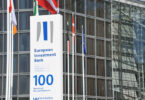Giesecke+Devrient (G+D) through its venture arm has invested in CBDC simulation firm FNA, alongside existing investors IQ Capital and Getty Lab. German-headquartered G+D is best known for providing technology services to central banks to manage banknotes, which accounted for 45% of its €2.3 billion ($2.7bn) 2020 revenues. The Munich firm is now active in central bank digital currencies (CBDC) and was recently awarded a contract by the Bank of Thailand for a CBDC prototype. G+D has an existing partnership with FNA for the CBDC simulator.
Financial Network Analytics (FNA) is a UK-based deep tech startup that focuses on payment networks. Its solutions include technology for regulatory supervision (SupTech), intraday liquidity analytics for banks, and the CBDC simulator.
The CBDC simulator
Every central bank is likely to have a unique set of motivations for introducing a CBDC, and the existing structure of payment systems will differ between countries.
Given these unique characteristics of an economy, how a CBDC network responds is likely to be different. China and Sweden are good examples of the existing heavy use of digital wallets for payments with one or two dominant players. In contrast, cash is still prevalent in Japan, and numerous wallet providers operate in an extremely competitive environment. The modeling for how these two very different scenarios might respond to the introduction of a retail CBDC is very different.
Additionally, many central banks have experience with high value payment systems, but few are directly engaged in retail payments where the volumes of debit card or wallet transactions can be very high. Hence, depending on the design of the CBDC, they may need to simulate these sorts of volumes to assess the infrastructure required.
One of the most critical aspects that central banks will want to simulate is the potential impact on commercial banks if some deposits migrate to the CBDC. And what happens during a bank run when consumers can switch to a CBDC.
Meanwhile, in 2019 FNA raised GBP 4.5 million ($6.2m) mainly from UK-based IQ Capital but also Californian Getty Lab. It has reported an additional GBP 3 million ($4.1m) fundraise in the last month, but it’s unclear whether this is the full amount of the latest funding round.






